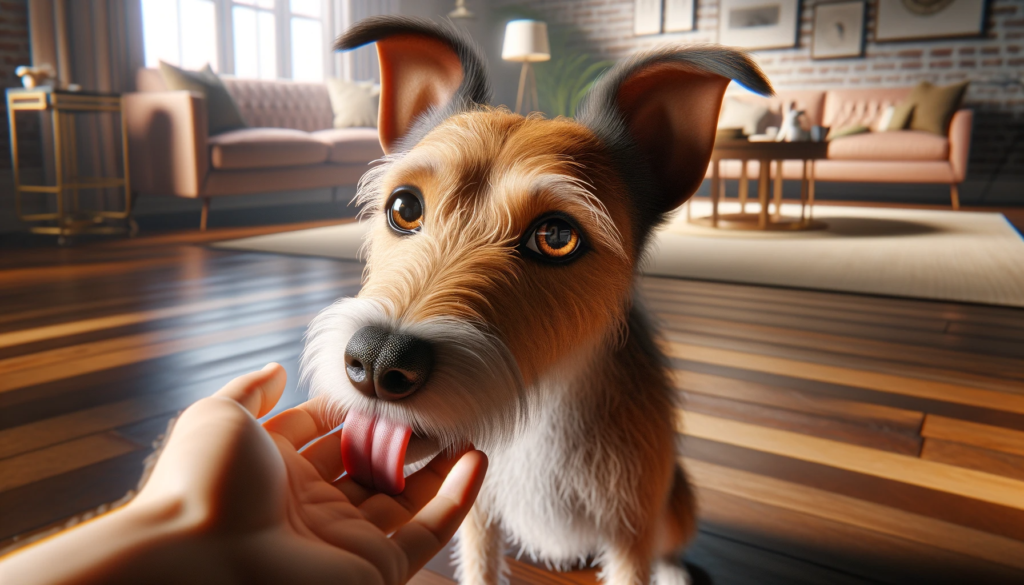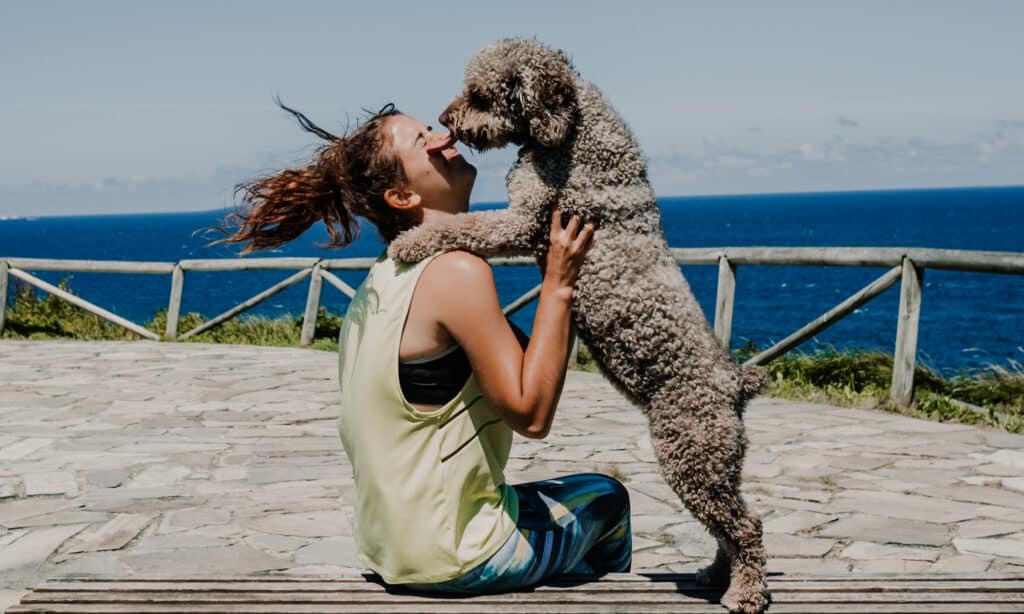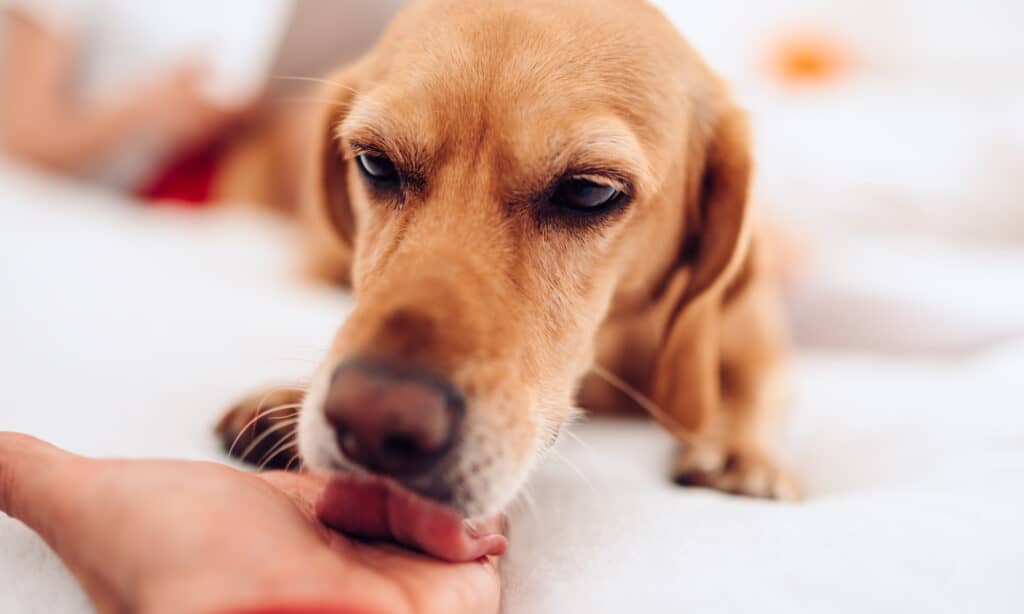If you’re a dog owner, you know that your furry friend can be curious and sometimes even a little mischievous. While their playful nature can be endearing, it can also lead them into some potentially dangerous situations. One such situation is when a dog comes into contact with human blood, either accidentally or intentionally. Dogs have a natural instinct to lick and investigate things with their mouth, and the sight or smell of blood can be particularly intriguing to them. However, this behavior can pose some risks to both the dog and the human. We’ll explore why dogs are attracted to human blood and what happens if a dog licks human blood.

Why Dogs Lick Blood
Dogs have an instinctive drive to investigate and taste new things, and the smell or taste of blood can be intriguing to them. Dogs are highly attuned to the various scents found in blood, especially the distinct odor of the iron it contains. Additionally, dogs may be attracted to blood because it can signal an injured or vulnerable prey animal, which would be a natural target for a dog in the wild. Dogs’ hunting instincts can make them investigate and consume blood if given the chance.
It’s important to note that while some dogs may be more attracted to blood than others, this behavior is generally instinctive and not a sign of a behavioral problem or lack of training. Prevent dog from contact with human blood to avoid health risks.
Potential Health Risks of Dogs Licking Human Blood
While the smell and taste of human blood may attract dogs, this behavior carries potential health risks. One of the biggest concerns is the transmission of diseases and infections from dogs to humans through their saliva. Dogs can carry a variety of bacteria and viruses in their mouth that can be harmful to humans, including Capnocytophaga canimorsus, which can cause severe infections in people with weakened immune systems. Human blood can expose dogs to the risk of disease transmission or bloodborne illnesses, making it a potential danger. It’s important to take precautions to prevent your dog from licking human blood to minimize these risks.

What to Do if a Dog Licks Human Blood
If your dog licks human blood, take immediate action to minimize risks and stay safe. Firstly, you should try to stop your dog from licking any further and remove them from the area if possible. Wash the affected area with soap and water to remove any potential pathogens from the dog. Contact your vet to assess if further action is needed for your pet’s health.
Your vet may recommend monitoring your dog or advise bringing them in for testing or treatment. If the human whose blood was licked is experiencing any symptoms or has reason to believe that they may have a bloodborne illness, they should seek medical attention immediately. By taking these actions promptly, you can help minimize the risks to both your dog and any humans involved.
Prevention Strategies
Preventing your dog from licking human blood is the best way to minimize the potential health risks associated with this behavior. There are several strategies you can use to accomplish this:
- Keep your dog on a leash: Leashing your dog while walking can prevent contact with human blood in certain areas.
- Keep first aid supplies out of reach: Prevent dog access to first aid supplies to avoid accidental ingestion.
- Train your dog: Train your dog to obey commands and avoid licking or investigating unwanted things.
- Keep an eye on your dog: Supervise your dog to avoid situations where they may encounter human blood.
- Practice good hygiene: Clean up blood spills quickly to prevent your dog from accessing them if someone is bleeding.
By taking these preventative measures, you can reduce the likelihood of your dog coming into contact with human blood and minimize the potential health risks associated with this behavior.

Conclusion
In conclusion, while it may seem harmless for your dog to lick human blood, there are some potential health risks associated with this behavior. Dogs are naturally attracted to the scent and taste of blood, and may investigate or lick it if given the chance. This behavior can spread diseases and pose risks to both pets and humans.
By taking steps to prevent your dog from coming into contact with human blood, such as training, supervision, and good hygiene practices, you can reduce the likelihood of this behavior and minimize the risks. If your dog does come into contact with human blood, it’s important to take prompt action to minimize the risks, such as washing the affected area and contacting your veterinarian or doctor. Be proactive to prevent risks for a healthy and safe dog and family.
~Sheena
